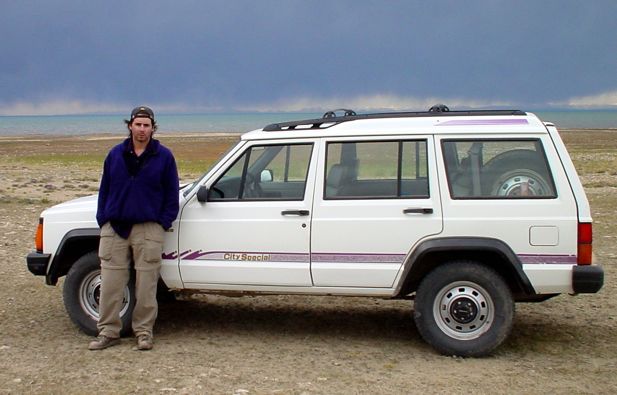
Foreign correspondents rarely have time as they explore China's vastness to return to places where there is little going on that seems worthy of a headline. Mr Hessler, however, keeps going back and in so doing fills an important gap in media coverage of the country. Through the lives of the ordinary Chinese he gets to know so well, he explains the country's complexity, insecurities and tensions better than many of the more analytical works that have appeared in recent years. As he observes at one point, when he uncharacteristically fails to probe deeply into the sufferings of people displaced by a dam project: "I felt like a drive-by journalist, listening to sad stories before I got back on the expressway." Many a foreign reporter in Beijing would rightly wince at that apology. Author Peter Hessler served as a Peace Corps Volunteer in China.
The Economist reviews Peter Hessler's "Country Driving: A Journey Through China from Farm to Factory"
A voyage of discovery
A reporter who explored China's bigger and lesser roads and found treasure
Feb 25th 2010 | From The Economist print edition
Country Driving: A Journey Through China from Farm to Factory. By Peter Hessler. Harper Collins; 432 pages; $27.99. Canongate; £14.99. Buy from Amazon.com, Amazon.co.uk
ROADS, and with them cars, are changing China faster than any dictat from the Politburo. Within a few years a motorway network has been built that is fast catching up with the length of America's interstate highways; China has already overtaken America as the world's biggest car market. Yet most foreigners, even long-term residents, have glimpsed this only partially. They curse the gridlock of Chinese cities caused by a new middle class hitting the roads in ballooning numbers, and at the mayhem these reckless novices create. They bemoan the transformation of rural peripheries by businesses catering to day-tripping car-owners: guesthouses, restaurants and theme parks. They fret about the fumes.
But Peter Hessler gets behind the wheel and explores the furthest reaches of this phenomenon. Few other foreigners have toured China's highways so extensively. Non-residents are usually not allowed to drive, and among foreigners living in China there is often a reluctance to risk roaming far: the country's roads are among the world's deadliest.
Mr Hessler was working for the New Yorker and the National Geographic when he researched this book. It is his third about China, a series launched in 2001 with "River Town", a memoir of his time as a Peace Corps teacher. "Country Driving", like his previous works, tells the story of China's transformation powerfully and poetically.
The first part of the book is about driving along the Great Wall, or what is really a series of walls, in a Beijing-made Jeep Cherokee. In 1923 an article in a Shanghai newspaper proposed, apparently seriously, that the wall be converted into a road to "make it easier to do business" across the breadth of China. Today such a notion would be heresy, the wall having been decreed by the Communist Party to be a sacred symbol of Chineseness.
But Mr Hessler's journey along it (as best he could since there is no road that runs the entire length) is not a fulfilment of a Chinese fantasy such as Americans once harboured about Route 66. Long-distance driving is even less a Chinese middle-class pursuit than it is for foreign residents. The people Mr Hessler meets along the wall are mostly poor Chinese who dream of getting away from the impoverished countryside traversed by the ancient structure.
China, though a frantic builder of roads, has little road culture. Map-reading is a rare skill, and not one that is encouraged by a government obsessed by cartographic secrecy. As Mr Hessler describes it, when lost the worst thing to do was to show people a map. Doing so, he says, was like "handing over a puzzle to a child-people's faces went from confusion to fascination as they turned the map this way and that, tracing lines across the page." Mr Hessler did not use a GPS device since he was worried that he might be accused of carrying out illegal surveying work (though this reviewer has found Chinese GPS technology an invaluable aid to exploring off the beaten track).
In the rest of the book Mr Hessler immerses himself in the lives of ordinary Chinese at opposite ends of what he calls the biggest migration in human history. He begins in a village outside Beijing close to the Great Wall, and ends in a factory town in the eastern province of Zhejiang (in this province factories come first and roads later, Mr Hessler notes). Roads weave in and out of his narrative, but the focus is on the lives of a handful of individuals among whom Mr Hessler builds up extraordinary trust. The reader becomes a fly on the wall in the village's political infighting and in the fraught relationship between factory bosses and migrant workers.
Foreign correspondents rarely have time as they explore China's vastness to return to places where there is little going on that seems worthy of a headline. Mr Hessler, however, keeps going back and in so doing fills an important gap in media coverage of the country. Through the lives of the ordinary Chinese he gets to know so well, he explains the country's complexity, insecurities and tensions better than many of the more analytical works that have appeared in recent years. As he observes at one point, when he uncharacteristically fails to probe deeply into the sufferings of people displaced by a dam project: "I felt like a drive-by journalist, listening to sad stories before I got back on the expressway." Many a foreign reporter in Beijing would rightly wince at that apology.












